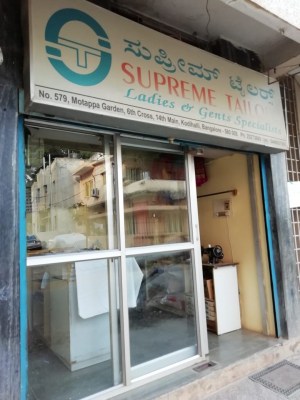 By Fakir Balaji
By Fakir Balaji
Bengaluru, Oct 7 : With no let-up in coronavirus cases even six months after the pandemic broke out in Karnataka in mid-March, owners of small businesses in this tech city are still reeling under losses due to the 40-day nationwide lockdown and disruption of normal life since then.
“Small businesses/traders are the worst hit due to lockdown since March 25 and subsequent extension till May 3. Easing of restrictions in phases since May 4 has only given us a lifeline to grin and bear it,” Supreme Tailors’ owner Anand Shettigar told IANS here on Wednesday.
Admitting that businesses were yet to recover the corona ‘misfortune’, Shettigar said the virus had disrupted normal life as never before and its continuation beyond six months had only compounded the businesses’ crisis.
“This is the first time in our life that we are facing such hardship due to disruption in business during the lockdown and absence of orders from customers, as weddings, festivals, other social events and functions, and even travelling have stopped due to fear of corona infection,” Shettigar pointed out.
Shettigar, 54, has been sewing clothes for the last 30 years at his shop in the city’s modest eastern suburb, catering to a middle-class clientele. He began to stitch clothes for women and children also for all occasions over the last two decades.
“Initially, we were made to believe by the government, especially Prime Minister Narendra Modi, that the coronavirus will be defeated in 21 days and normalcy return soon… and a vaccine made in India will be available for the prevention and treatment of the disease at state-run hospitals.
“Till the vaccine is developed and people get immunised, I do not foresee life and business returning to normal in the near future.”
He rued: “Unlike salaried people, we are totally dependent on customers for livelihood amid the competition from readymade garment shops. As our customers are also victims of the pandemic, we have no choice but wait for the situation to improve by Ugadi festival in March-April next.”
Though the 10-day Dasara festive season from October 16 and a weeklong Diwali celebrations in mid-November are round the corner, the tailor does not see a demand for stitched clothes increasing any time soon, as people are wary of the virus spread and thus unwilling to spend on things that can wait.
“As stitching orders have plunged 80 per cent over the last 6 months, I was forced to not hire more than two workers for cutting and stitching clothes. As festivals will be low-key or subdued due to the corona restrictions, orders will be few and far between,” Shettigar noted.
Echoing the tailor, Narayan Condiments partner Lalbhai Yadav, 40, said 2020 has been very harsh on people like him who migrated to south India from the north in hundreds for livelihood, leaving families behind. He hails from a village near Prayagraj (Allahabad) in Uttar Pradesh.
“Owing to sudden lockdown since March 25 and its extension till May 31, and no sale of cigarettes, pan, gutka etc due to the pandemic, we suffered a loss of Rs 10,000 in the first three months as our shop remained shut,” Yadav recalled.
Though Yadav was allowed to reopen the shop in June’s first week under Unlock 1.0, business is yet to pick up, because customers are not many due to work-from-home system, fear of the virus and mandatory physical distancing.
At his shop, manufacture and sale of popular Indian snacks such as ‘samosas’, ‘kochoris’, ‘chats’ and ‘paani-puri’ was also discontinued as workers left for their native hometowns in Uttar Pradesh, Bihar, and Jharkhand.
“While some of us survived and resumed business, many others shut shop and left for home in July-August once the lockdown was lifted and select trains resumed services. They will return only after the virus is gone or when a vaccine is available, as they don’t wish to risk their lives or struggle for livelihood in the absence of business,” Yadav added.
Disclaimer: This story is auto-generated from IANS service.

